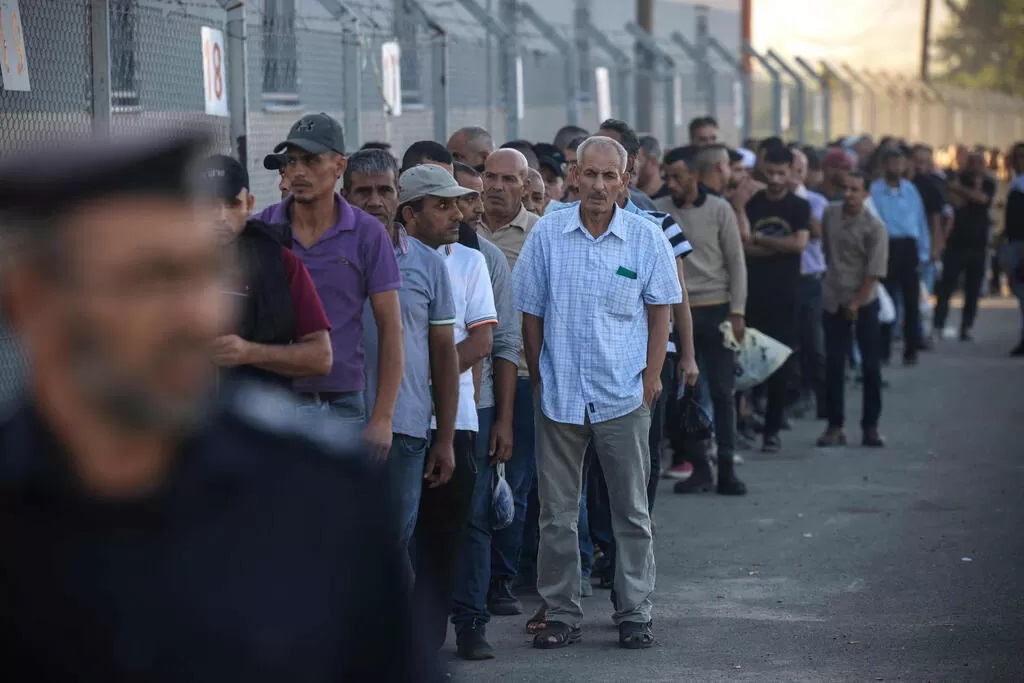Security Concerns Prompt Cabinet Decision to Bar Palestinian Workers’ Entry into Israel

Watan-In light of the ‘security threat,’ members of the Social-Economic Cabinet voted against the return of Palestinian workers to Israel. The decision will now be transferred to the Political-Security Cabinet, which is scheduled to convene later this evening.
The Cabinet for ‘Social and Economic Affairs,’ led by Finance Minister Tzachi Hanegbi, unanimously opposed the proposal by the security establishment to increase the number of Palestinian workers allowed to enter Israel, amid restrictions on employment.
Decision to Prohibit Entry of Palestinian Workers
All government ministers opposed the proposal, except for Minister of Agriculture Avi Gabbay and Minister of Labor Yuval Ben-David, who abstained from voting.
Later, the same issue will be discussed in the Political-Security Council—the body authorized to make decisions on this matter.
Cabinet members voted to prevent the entry of Palestinian workers into ‘Israel,’ citing it as a security threat. According to the Hebrew newspaper ‘Yedioth Ahronoth,’ as translated by Watan, the decision of the Economic Cabinet may impact the Security Council’s decision. However, there are also security considerations for approving the entry of monitored workers. The report pointed out the challenging economic situation in the West Bank.

Discussion on the Entry of Workers into Settlements in the West Bank
At the end of the meeting, ministers decided to invite Israeli Prime Minister Benjamin Netanyahu to conduct a discussion as soon as possible regarding a comparison of authorities and standards for the entry of Palestinian workers into Israeli settlements in the West Bank.
Finance Minister Smotrich thanked government members after the vote, stating, ‘Those who harm us when they have no money will harm us when they do. The security of the nation, ‘the citizens of Israel,’ comes first, and we recommend to the Political-Security Cabinet not to approve the entry of workers. We can and must enhance alternatives that will provide a different response to the economy,’ he said.
A representative of the Israeli intelligence agency ‘Shin Bet,’ who attended the discussion, emphasized the importance of motivating workers to work in Israel.

Meanwhile, a representative of the so-called ‘Coordinator of Operations in the Territories’ confirmed that the closure since October 7 is the toughest imposed in the region. He pointed out that workers will not be able to stay in Israel, stating, ‘They will come and leave at the end of the week.’
Ministers questioned how to ensure the actual return of workers to their homes. They realized that, practically speaking, there is no way to enforce a ban on residence in Israel.






